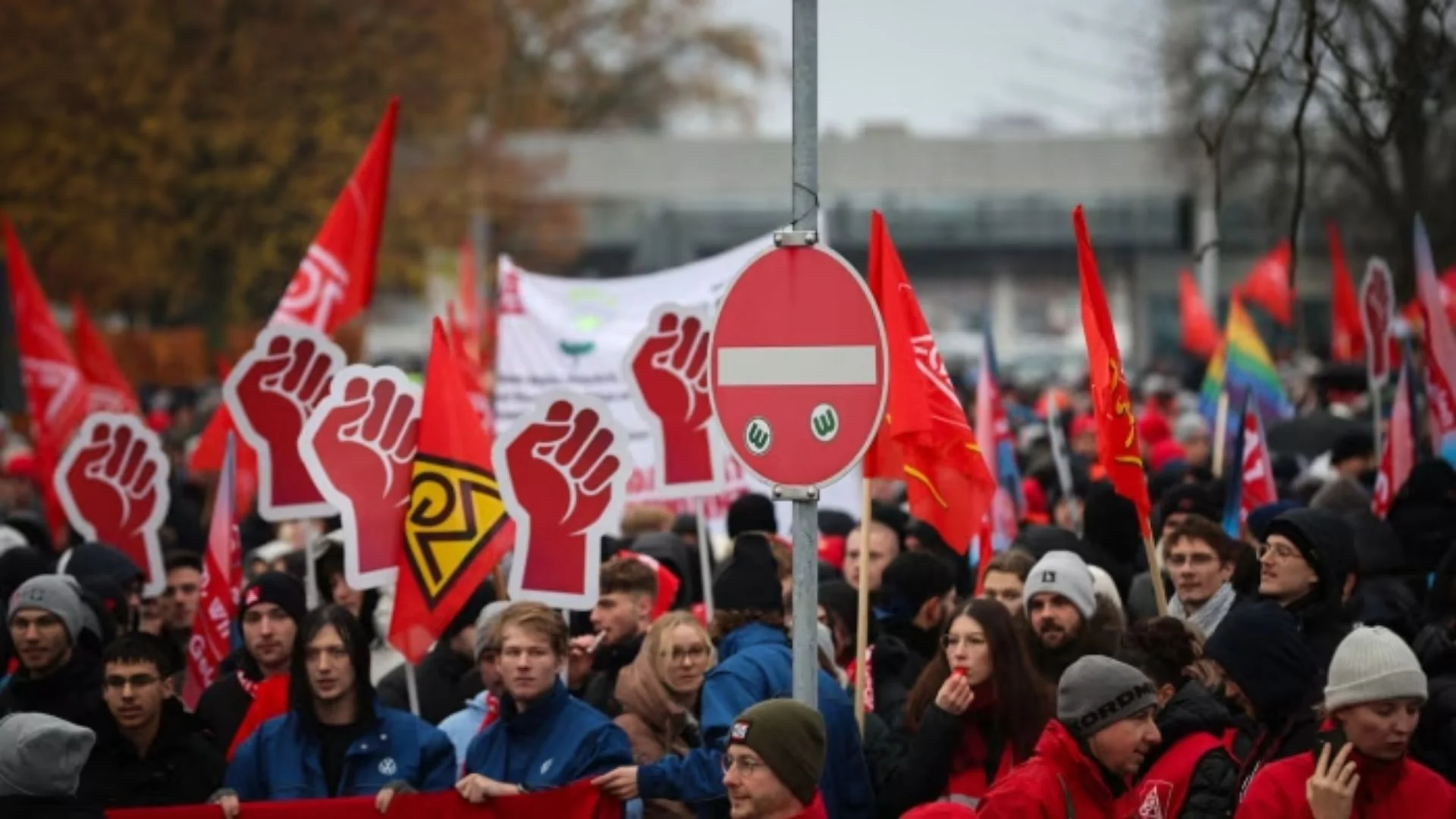
Workers at nine Volkswagen plants across Germany launched strikes on Monday as labor disputes intensify between management and employees over the company’s future operations in the country.
The strikes, organized by the IG Metall union, have brought assembly lines to a standstill and are expected to escalate if an agreement is not reached in upcoming wage negotiations. Demonstrations are planned at Volkswagen’s headquarters in Wolfsburg, as well as at its Hanover plant, which employs around 14,000 people. Additional protests will take place at plants in Emden, Salzgitter, and Brunswick.
Volkswagen’s output is expected to be significantly affected, with the company already grappling with declining deliveries and a sharp drop in profits. The strikes come after the expiration of an agreement to avoid walkouts, which ended on Saturday, allowing employees to begin protesting. Workers at subsidiary Volkswagen Sachsen GmbH, including those at the company’s EV-only plant in Zwickau, are set to strike through Tuesday.
The IG Metall union has proposed a set of measures aimed at saving 1.5 billion euros, including a freeze on bonuses for 2025 and 2026, but Volkswagen dismissed the offer. In response, the company has called for a 10% wage cut, arguing it needs to reduce costs to boost profitability and maintain market share.
Volkswagen has also threatened to close plants in Germany for the first time in its 87-year history if costs are not reduced. The union, however, is demanding a long-term plan that guarantees the future of all Volkswagen plants.
Negotiations will resume on December 9, but the union has warned it will resist any proposals that do not meet its demands for job security and fair compensation.















